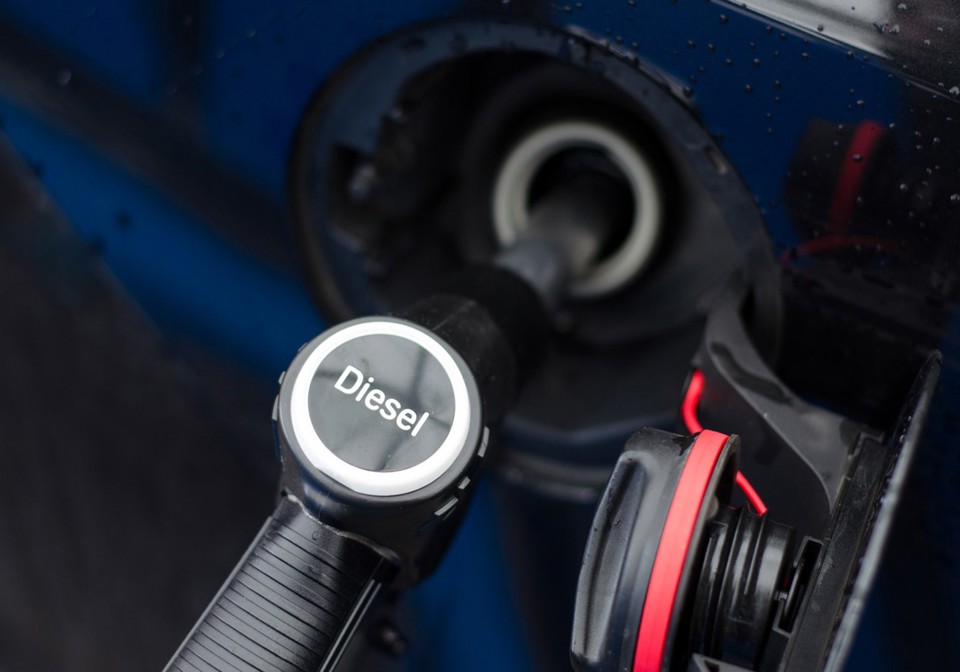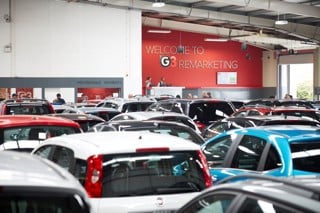The Government should end its freeze on fuel duty and introduce a surcharge on diesel in a bid to improve air quality, says a Conservative think tank.
Fuel duty has not changed since 2010, says Bright Blue’s Emission impossible? Air pollution, national governance and the transport sector report, but this should end from the next tax year.
The report also calls for an ongoing surcharge for vehicle excise duty (click here for latest VED rates) on new diesel cars in the UK as the “ongoing VED rates that apply to cars registered on or after April 1, 2017, do not tax diesel vehicles in a way that reflects their contribution to air pollution”.
It says this ‘diesel excise duty’ should be lower for vehicles that meet the RDE2 standard.
However, the report appears to contradict its stance of singling out diesel for extra charges due to air quality by later stating: “Petrol cars are not so simply better than diesel in terms of their contribution to air pollution.
“Some petrol cars, specifically those that use direct injection engines, can emit more PM than conventional diesel cars.”
The report also proposes new legal limits, legal responsibilities and policies to significantly reduce levels of air pollution after Brexit.
William Nicolle, researcher at Bright Blue and co-author of Emission Impossible?, said: “Stronger evidence has emerged in recent years about the detrimental impact of air pollution to human health, the economy and the environment.
“Consequently, there is growing public and political pressure for tougher action to reduce levels of air pollution in the UK.
“The UK Government needs new, ambitious legal limits, legal responsibilities and policies on air pollution.”
As well as introducing the diesel fuel and VED surcharges, Bright Blue's main policy recommendations for reducing air pollution from the transport sector are:
- Exempt the purchase of ultra-low emission vehicles from VAT
- Enable local and combined authorities to strive for ‘reasonable profits’ from their charging clean air zones to fund further local air pollution abatement policies.
- Mandate introducing charging or banning clean air zones for non-road mobile machinery alongside the establishment of all charging CAZs in England.
- Make it a requirement for local authorities with a charging CAZ to introduce a citizen-based reporting system to increase the enforceability of anti-idling measures.
- Replace the current 30mph default speed limit on all ‘restricted roads’ in England and Wales with a 20mph default speed limit.
- Require the installation, checking and cleaning of particulate matter filters on all petrol cars through the annual MOT test.
























Mark Williams - 14/08/2019 11:44
Wouldn't it be excellent for air quality if PMs could be cut by 95% and commuters able to get vehicles which do 200mpg? Well, this exists in the form of Euro VI coaches and buses, which not only knock cars' Euro 6 standard into a cocked hat but by sharing the fuel use, can achieve better than hybrid car levels of emissions per commuter. The only thing stopping this revolution is the length an unreliability of PSV journeys, entirely caused by cars containing one commuter, yet none of the current CAZs propose charging cars... only coaches get charged. Efficient use of roadspace is the only feasible method of cutting emissions and congestion, and that isn't resolved by electric cars or autonomous cars, which use ten times as much roadspace per person